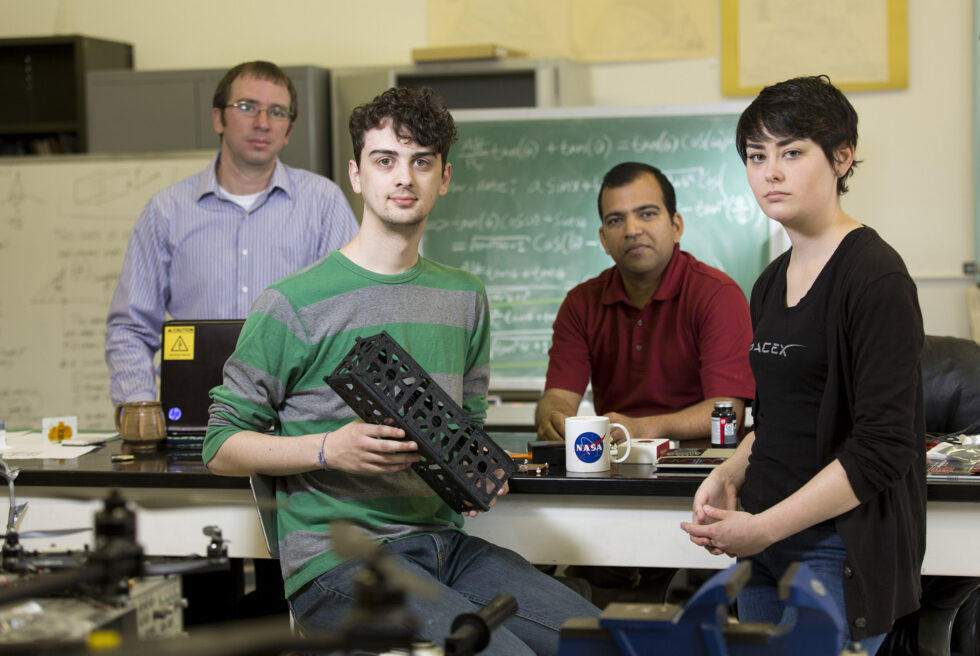
Caption
Post Doc research scientist David Cotten of the Center for Geospatial Research, Senior computer science and astrophysics major Caleb Adams, Professor of Geography Deepak Mishra, and senior mechanical engineering major Megan Le Corre are working together along with a team of students and professors in a collaborative effort to design, build, and deploy (with the help of NASA) a cube satellite. Adams is holding a 3D printer model of the CubeSat. / Capitol Beat News Service
Credit: UGA

